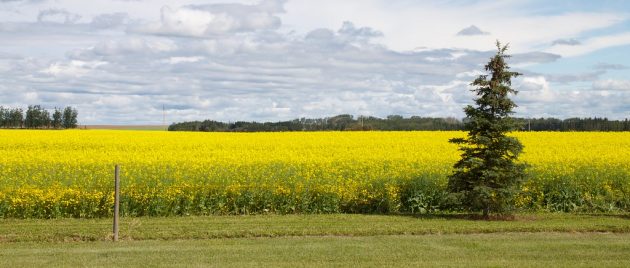
Major canola exporter to China says finding new markets not easy


China imported $2.7 billion worth of Canadian canola seed last year, making it Canada's top market

PHOTO: Canola/Tuchodi via Flickr
OTTAWA – The head of one of Canada’s biggest exporters of canola seed to China warned lawmakers in Ottawa on Tuesday that finding new markets outside the Asian country “will not be a painless exercise.”
Curt Vossen of Richardson International Ltd. spoke to a parliamentary committee, which is studying a trade dispute that has seen China suspend licences for Canadian canola companies to sell there – including that of Richardson International.
Citing pest and quarantine concerns, China halted shipments of canola seeds from Canada and has increased its inspections. Canola seeds are the raw material for canola oil, a vegetable oil widely used for cooking and in some industries.
China’s decision has been widely viewed as retribution for Canada’s December arrest of Huawei senior executive Meng Wanzhou in Vancouver at the behest of the United States.
Vossen said he cannot emphasize enough the importance of finding a solution to the feud – and quickly.
“If the current disruption continues over the longer term, we will have no choice but to find other markets for Canadian canola seed, however doing so will be no easy task,” said Vossen, who’s CEO of the Winnipeg-based company that’s been doing business with China for more than 100 years.
“While we are confident that we can eventually find other markets, it will not be a painless exercise.”
The Asian country imported $2.7 billion worth of Canadian canola seed last year, making it Canada’s top market and ensuring that any extended feud would be felt by farmers, the industry and the broader economy.
Vossen said canola products alone were just over 15 per cent of all of Canada’s exports to China and, last year, were worth more than $4 billion.
“To say that canola is important to Canada’s trading relationship with China would be a gross understatement – canola and, indeed, the entire grains and oilseeds complex is the foundation of Canada’s trading relationship with China,” he said, noting the disruption comes at a critical time right before seeding season, when farmers are deciding how much to grow.
“You can appreciate that such a course of action was alarming and upsetting, given Richardson’s long-standing relationship with China – an unblemished relationship with China.”
As it searches for a solution to the Chinese trade disruption, the federal government has said it’s trying to find new markets for Canadian canola.
Agriculture Minister Marie-Claude Bibeau and International Trade Minister Jim Carr testified later Tuesday in front of another House of Commons committee about the government’s handling of the canola feud.
“If our farmers suffer, we all suffer,” Carr told the committee. “Our government is seized with this issue.”
The Liberal government has insisted it wants to find a scientific solution to the dispute and Bibeau has said she sent a letter to her Chinese counterpart with a request to send a delegation of experts to China to examine the issue.
Bibeau also said she’s examining options to support farmers through the possible expansion of existing programs.
The federal Liberals have also established a working group to address the issue that includes Richardson, Viterra Inc., which has also had its licence suspended by China, and representatives from the governments of Alberta, Manitoba and Saskatchewan.
On March 1, the same day China suspended Richardson’s licence, Canada’s Justice Department gave the go-ahead for the extradition case against Meng.
It marked the formal start of the high-profile process that has thrust Canada into a highly uncomfortable position between China and the U.S.
In the days following Meng’s arrest last year, China arrested Canadian citizens Michael Kovrig, a Canadian diplomat on leave, and Michael Spavor, an entrepreneur, on allegations of engaging in activities that have endangered Chinese national security.